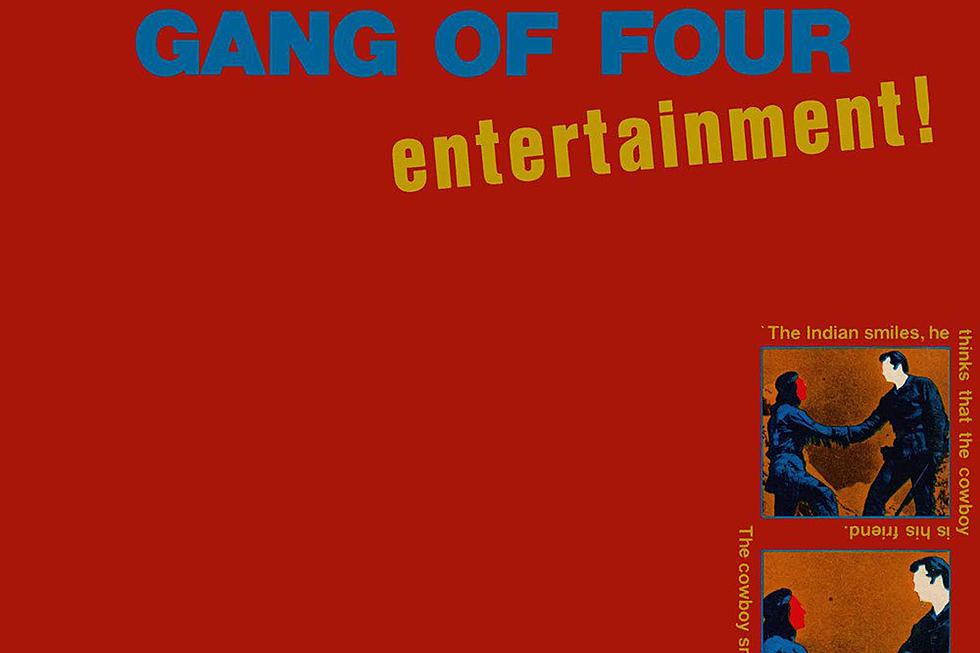
40 Years Ago: Gang of Four Take Punk in New Direction on ‘Entertainment!’
By the end of the '70s, punk was already getting tired of the template it had laid out for itself just a few years earlier.
There were still bands playing around with the basic song structures the genre limited itself with back when it started rippling across the U.K. in the middle of the '70s. But more ambitious artists were growing weary of the boundaries set upon them and their music. So, just a few short years after punk was declared the Next Big Thing by the music press, fans and insiders, a new strain emerged from the blisters, bruises and spit.
Like punk, post-punk took on several different shades. They all stemmed from the mothership, with raging guitars and hormones colliding with politics and stripped-down aesthetics carried over from the parent. But unlike punk, post-punk wasn't afraid to show its intellectual and occasional playful side.
Bands like Talking Heads, Joy Division, Wire, XTC and the Cure incorporated dance beats, artsy idealism, pop nostalgia and electronic textures into their music. Gang of Four, a quartet formed in Leeds, managed to work basic funk foundations into the post-punk side trip that resulted in their debut album, Entertainment!, a milestone work of the genre and era that was released on Sept. 25, 1979.
Listen to Gang of Four's 'Damaged Goods'
Gang of Four weren't strictly tethered to their post-punk corner. Dance music -- or at least as close as punk got to it back then -- is at the center of Entertainment!, but so are other sounds that were spreading around England at the time, including reggae and its spaced-out flip-side, dub.
But it's the dance beats that make Entertainment! so revolutionary. This wasn't disco music, but it was closer to that than it was, say, the Ramones' two-chord guitar assaults or Sex Pistols' full-speed-ahead charge. And that's something that was just not heard in punk music, especially in 1979 when the genre had pretty much constructed battle lines between itself and everyone else.
"Natural's Not in It," "Damaged Goods," "At Home He's a Tourist" and "Anthrax" took punk in a new direction, and helped place Gang of Four and Entertainment! at the forefront of the burgeoning post-punk movement. Jon King and Andy Gill, the core architects of the band's sound, stirred avant-garde art and European political ideologies into the music, pushing the group further away from its parent genre. Gill's stabbing guitar attacks, which helped spearhead a style that's still being employing by artists, complemented their songs about terrorism, capitalism, feminism and, occasionally, sex.
Though some bands picked up on Gang of Four's dance-punk thing over the years, it would be a couple decades before direct imitators -- like !!!, Franz Ferdinand and the Rapture -- started to surface around the turn of the century. None of those bands, however, was as politically or musically abrasive as Gang of Four, who continued to explore similar themes over the next few years. (They reunited in the '90s and '00s for records and tours.)
None of this makes Entertainment! an easy listen. The album's dance elements aren't as fluid as genre fans are used to; likewise, the flexible nature of the music's basic rhythms isn't what punks were embracing at the time either. Still, like other records that rubbed against convention and expectations, this one found its relevance in a new place. Consider it one of post-punk's foundations, and one of the most influential albums released in the '70s.
40 Best Punk Albums
More From Ultimate Classic Rock









